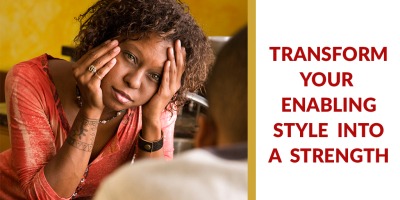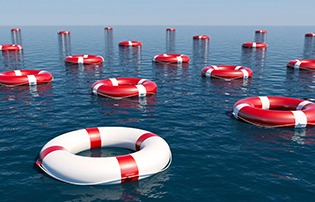
There is nothing digestible or tolerable about discovering that your child is in the throes of drug and alcohol addiction. One of the first things you may notice is how outsiders marginalize you and reject the medical “brain science” of addiction. A strong belief exists that substance abuse is a moral or behavioral issue and a sure sign of weakness in you, your family, and your child.
Whatever your personal “take” on addiction, it’s not until the monster invades your own home that you come face to face with the risks and chaos that define the lives of families battling this insidious disease. Only then do you begin the complex, arduous journey of trying to decipher how best to help a child who seems beyond reach.
A startling fact that first invades your consciousness through education and 12-Step support groups is that you can’t Control or Cure your child’s addiction (nor did you Cause it). Yet it feels as if you’re doing all the wrong things. Thankfully, you also learn that you can initiate effective recovery measures by focusing on YOU:
- eliminate the coping actions and attitudes that contribute to your enabling
- draw new, clear, protective boundaries
- harness your strengths
Believe it or not, a good place to start looking for strengths is in your special brand of enabling, where your true abilities are hidden and embedded. Surprising, right? Though enabling is a natural human response to stress, we all know that it’s not a good thing to do - so how can it possibly relate to your gifts? But think of it this way…just as coaches help job seekers reframe seemingly negative behaviors as more positive assets (being bossy might translate to good leader; picky neat-nicks can make great organizers), your misguided enabling often reveals your hidden talents.
Do you rescue, fix, pay for, deny, glorify, minimize, bribe or plot against your addicted child? Maybe so. But you also, from an early age, probably demonstrated gems of ability in the roles you naturally sought: The Strategist, The Stabilizer, The Empathizer, The Optimist, The Crusader, or The Scientist, and so on. Martin Seligman, PhD, a founding Father of Positive Psychology and author of Authentic Happiness, says that we too often pathologize people, including ourselves. He suggests that instead, you call on your strengths rather than weaknesses, “to develop natural buffers against misfortune and the experience of negative emotions”.
Seeing the good in your “bad” and characterizing the roles you play more optimistically will soften the blow to the ego that every parent takes when confronted with their own enabling. And you’re more apt to transform your ways when you first acknowledge your “best self” within.
Once you redirect strengths towards more productive efforts, you can gain traction in your recovery that, in turn, helps your child move closer to his/her recovery. For example, if your parent enabling style leans towards The Empathizer, your emotions may cloud judgment under stress. However, your natural tendency to honor people’s potential can help you remain faithful that your child’s real self will re-emerge despite destructive actions (DUI’s, stealing, dealing) during active addiction.
If your parent enabling style tends towards The Strategist, you may try to over-manage or mastermind difficult situations. Instead, you can apply your visionary and problem-solving skills to the process of researching treatment options and planning lifelines for your child to use when ready for recovery. Under stress, the parent enabling style of The Crusader may dissolve into a hyper focus on your addicted child. Rather than fixating on rescuing, your helpfulness can be rechanneled into organizing parent support groups and speaking out to counteract stigma.
Next time you fall prey to enabling acts and cave to the manipulations of your child under the spell of active addiction, try reframing your “personal weakness” as simply your overused strength. Tame your guilt and decide how you will reroute your gifts more effectively. A strategic and tactical use of strengths helps build your own recovery and also serves as a model for your child when they become ready to find their own sobriety.
 Nancy Clifford is a Career and Life Coach, Strengths Specialist, and writer who helps individuals and parents affected by the disease of addiction.
Nancy Clifford is a Career and Life Coach, Strengths Specialist, and writer who helps individuals and parents affected by the disease of addiction.






